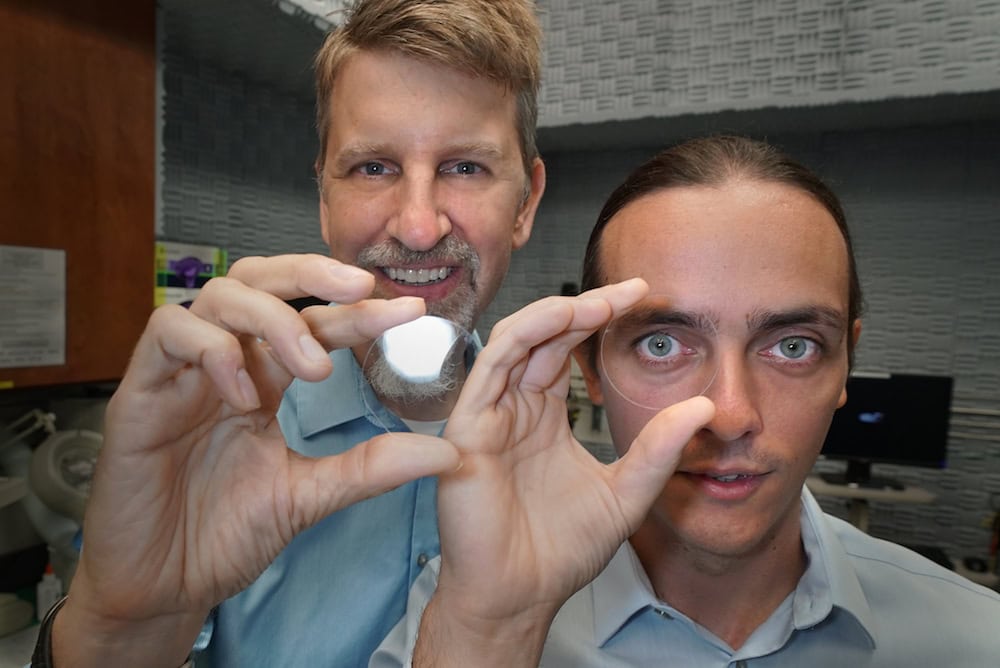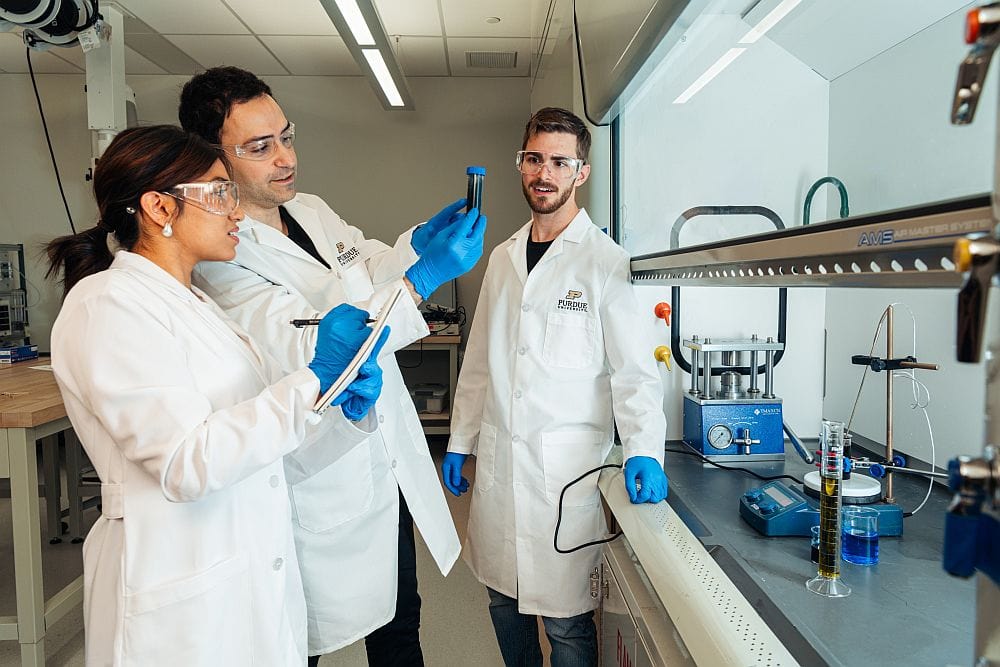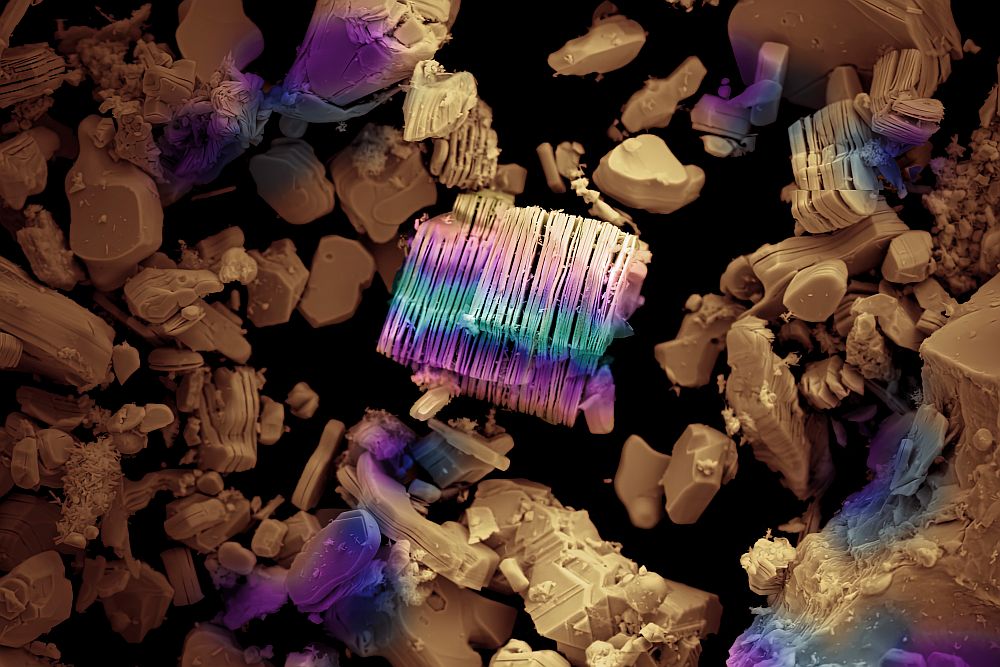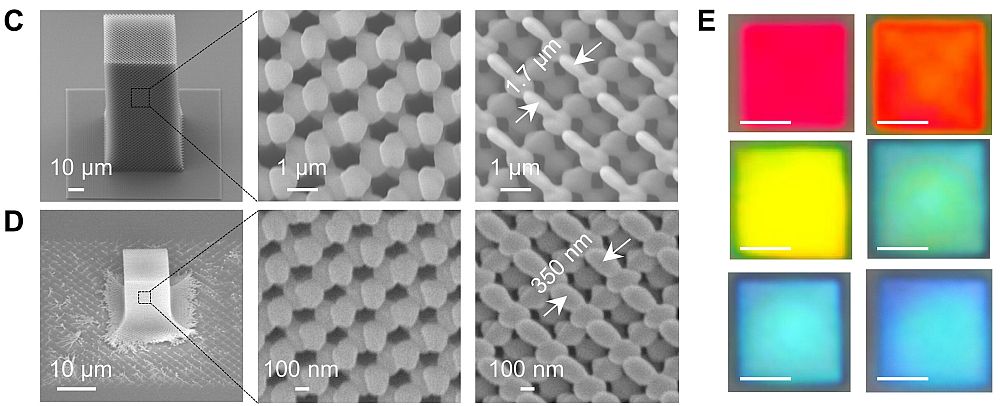
[Image above] Charles Black (left), director of Brookhaven National Lab’s Center for Functional Nanomaterials, holds a piece of regular glass. Andreas Liapis (right), research fellow at Massachusetts General Hospital’s Wellman Center for Photomedicine and former postdoc at CFN, holds a piece of invisible glass. Credit: Brookhaven National Laboratory
Nanotechnology has been making news lately.
Researchers are using nanotechnology to solve neurogenerative disease. Other scientists are using nanomotors for targeted drug delivery. Others are studying the effects of radiation at the nanoscale level.
And this year, nanotechnology beat out a solar energy collector, laser lithotripsy, PV robotics, and approximately 800 other submissions from 60 countries to earn first place in the Create the Future Design Contest, produced by Tech Briefs Media Group.
On the heels of National Nanotechnology Day, scientists at Brookhaven Lab’s Center for Functional Nanomaterials have scored a big win for their nanotechnology research. They received the grand prize of $20,000 for their entry, “Invisible Glass,” which they developed and we reported on last year.
“…Nanoscience is about the study of materials that have the potential to profoundly improve the quality of human life,” Center for Functional Nanomaterials director Charles Black states in a BNL news release. “We’ve been fascinated by the nanoscience that underlies invisible glass, and we’re excited that a technology based on this research could impact both consumer and industrial applications.”
Black and codeveloper Andreas Liapis, research fellow at Massachusetts General Hospital’s Wellman Center for Photomedicine and former postdoc at CFN, developed their technology by etching nanometer-sized cones with sharp tips onto both sides of a block copolymer template.
According to the paper, reflection loss “can be as much as 8% for glass encapsulated cells.” The nanocones lessen and virtually eliminate the light reflection by changing the refractive index.
Their advancement could significantly improve the glass that covers our computers, smartphones, TVs, and other electronic displays that are susceptible to that annoying glare. Also, their invisible glass could especially be useful for the solar industry in improving solar panels’ overall efficiency.
Tech Briefs Media Group will present the award to Black and Liapis at a special awards dinner in New York on November 9.
“We’re so honored to have our work recognized by this year’s Grand Prize,” Black adds. “The award validates the potential impact of our approach, and it will be useful in advancing our technique from a research innovation developed at a national lab nanoscience user facility to a commercial process for manufacturing nonreflecting glass, silicon, and plastic surfaces.”
To learn more about the contest and entry requirements, visit this link. And head over here to view the entire list of entries.
Author
Faye Oney
CTT Categories
- Nanomaterials


